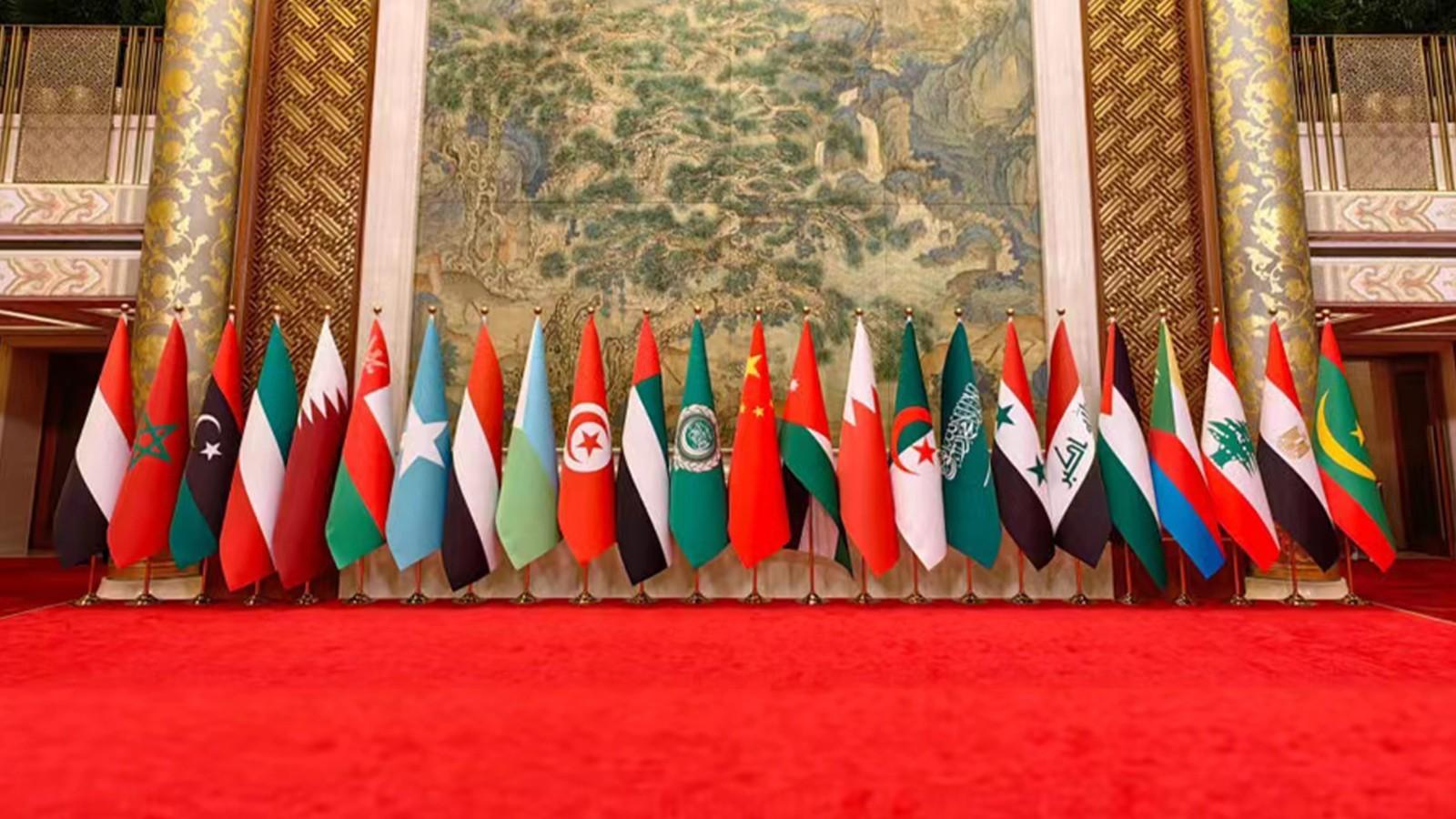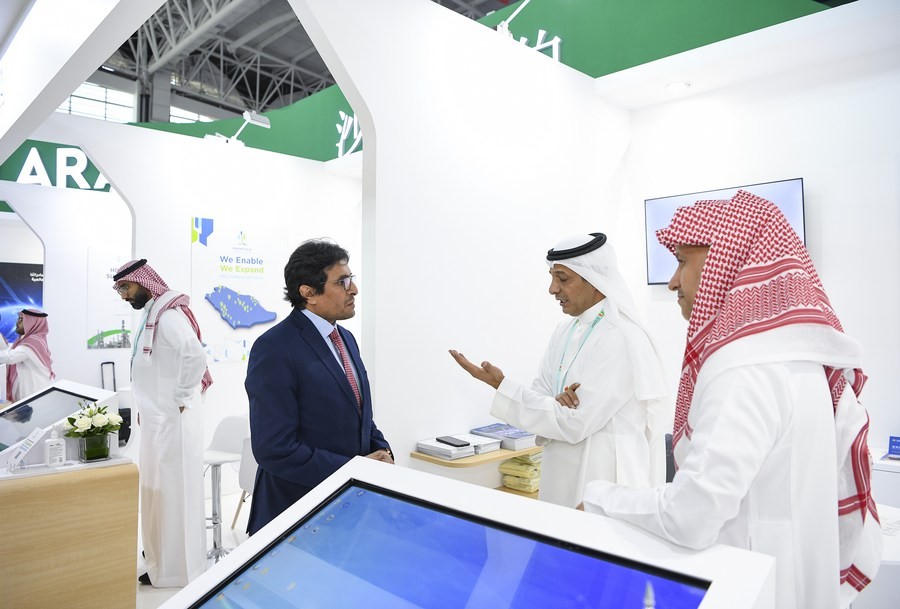
National flags displayed at the opening ceremony of the 10th ministerial meeting of the China-Arab States Cooperation Forum, Beijing, China, May 30, 2024. [Photo/Xinhua]
By Wang Jin
2024 commemorates the 20th anniversary of the establishment of the China-Arab States Cooperation Forum (CASCF), with the 10th ministerial conference convened in Beijing, China, on May 30. Over the past two decades, the Forum's mechanisms have evolved incrementally, facilitating continuous expansion in the scope of China-Arab cooperation with notable achievements. The CASCF has emerged as a pivotal platform for collective dialogue and pragmatic collaboration between China and the Arab states.
As China and the Arab states share comparable historical trajectories and bear the significant responsibility of national rejuvenation, the recent ministerial meeting in Beijing, marked by the release of three joint statements – the Beijing Declaration, the CASCF execution plan for 2024-2026, and a China-Arab states joint statement on the Palestinian issue – underscored the mutual intent to perpetuate their friendship, deepen cooperation, and fortify political trust for the future.
The enduring and profound traditional friendship between China and the Arab states constitutes valuable assets fostering sincere cooperation. The CASCF has matured into a crucial platform for bilateral collaboration, playing a pivotal role over the past 20 years in enhancing mutual political trust, fostering economic and trade cooperation, promoting cultural exchanges, and advancing scientific and technological progress.
This sustained engagement has yielded a plethora of accomplishments, thereby underscoring the vitality and significance of this cooperation. Together, both sides have actively engaged in international issues of common concern, emerging as a significant force in upholding international fairness and justice.
Now, China has forged comprehensive strategic partnerships or strategic partnerships with 14 Arab countries and the Arab League. Driven by robust economic complementarities, China and Arab countries naturally align as economic and trade partners within the Belt and Road Initiative (BRI). The advancement of the BRI in the Middle East heralds breakthroughs in China's relationship with these countries.
China and Arab states are pivotal to each other as the latter constitutes China's main overseas crude oil suppliers and China has been the largest trading partner for Arab countries for years. Bilateral trade between the two sides has witnessed remarkable growth, escalating from $36.7 billion in 2004 to $431.4 billion in 2022. Collaboration between both parties has expanded beyond conventional economic and trade spheres to encompass high-tech domains such as medical and healthcare, satellite communications, and other emerging fields.

A guest talks to exhibitors at the booth of Saudi Arabia during the sixth China-Arab States Expo in Yinchuan, northwest China's Ningxia Hui Autonomous Region, September 21, 2023. [Photo/Xinhua]
In December 2022, the first China-Arab States Summit was held in Riyadh, Saudi Arabia. Chinese President Xi Jinping, together with leaders from Arab countries, delineated a blueprint for bilateral relations and pledged concerted efforts towards fostering a China-Arab community with a shared future in the new era.
China's mediation in the rapprochement between Saudi Arabia and Iran in 2023 mitigated exigencies of the concerned parties, significantly contributing to regional peace and stability. This mediation highlights China's role as a facilitator of security and stability, a proponent of development and prosperity, and a champion of unity and self-reliance in the Middle East, exemplifying China's role as a major power and its successful implementation of the Global Security Initiative.
Since the new round of Israeli-Palestinian conflict beginning on October 7 last year, China has engaged urgently with various stakeholders, actively promoting peace and negotiations. In contrast, certain external powers have exacerbated tensions in the region through irresponsible interventions. The recent three-phase peace proposal by the U.S. aimed at resolving the protracted conflict may offer prospects for stability. However, the inadequacies of the proposal in addressing regional humanitarian assistance and peacekeeping responsibilities demonstrate that the proposal might just pay lip service to the advancement of the regional peace process.
During the past two decades, China and the Arab states have consistently reinforced political mutual trust, jointly contributing positively to regional and global peace and stability. This collaborative endeavor provides invaluable insights for South-South and North-South cooperation. China's development trajectory embodies the principles of peace and progress, underscoring its commitment to continue serving as a steadfast friend and partner to Arab states.
Wang Jin, a special commentator on current affairs for CGTN, is a research fellow of the Charhar Institute.

 中文
中文



